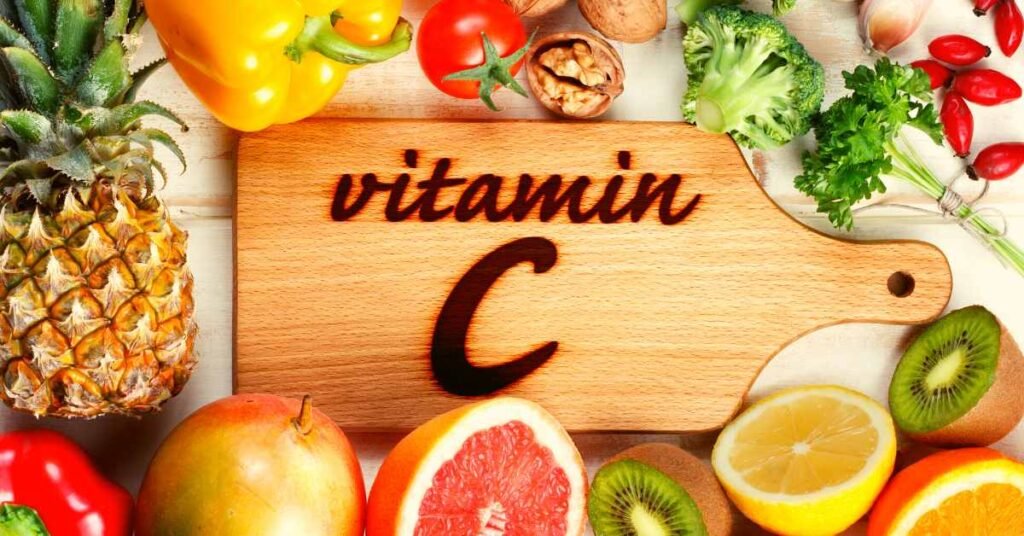In a world that constantly emphasizes the importance of maintaining a balanced and nutritious diet, it’s alarming to note that many individuals still struggle with vitamin deficiencies.
One such crucial nutrient is vitamin C, known for its role in immune function, collagen synthesis, and antioxidant properties.
While oranges and citrus fruits often steal the spotlight as rich sources of vitamin C, there’s another, perhaps unexpected hero in the fight against deficiency – tea.
Understanding Vitamin C Deficiency

Vitamin C, also known as ascorbic acid, is an essential water-soluble vitamin that the human body cannot produce on its own.
It plays a vital role in supporting the immune system, aiding the absorption of iron, promoting healthy skin, and acting as a potent antioxidant that fights oxidative stress.
A deficiency in vitamin C can lead to scurvy, a condition characterized by fatigue, muscle weakness, joint pain, and impaired wound healing.
The Global Challenge
Vitamin C deficiency is a global health concern, affecting people of all ages and backgrounds.
Poor dietary choices, limited access to fresh fruits and vegetables, and certain medical conditions can contribute to lower vitamin C levels.
As the world grapples with changing lifestyles and dietary patterns, exploring alternative sources of this essential vitamin becomes imperative.
Tea as a Surprising Source
While tea might not be the first thing that comes to mind when considering vitamin C-rich foods, certain types of tea can be valuable contributors to daily intake.
Black, green, white, and herbal teas contain varying levels of antioxidants, including vitamin C, making them an excellent addition to a balanced diet.
Green Tea

Green tea, renowned for its numerous health benefits, is a standout in the world of vitamin C-rich teas.
Packed with antioxidants, green tea has been shown to enhance immune function and protect against oxidative stress.
Research suggests that a cup of green tea can provide a moderate but significant amount of vitamin C, contributing to the daily recommended intake.
Herbal Teas
Herbal teas, crafted from a variety of plants and herbs, can also be a noteworthy source of vitamin C. Examples include hibiscus tea, rosehip tea, and chamomile tea.
Hibiscus tea, in particular, stands out for its vibrant color and tart flavor, delivering a substantial dose of vitamin C along with other beneficial compounds.
Black Tea
While black tea is generally known for its rich, robust flavor and higher caffeine content compared to green tea, it, too, contains antioxidants, including vitamin C.
While the levels might be lower than those in green tea, incorporating black tea into your routine can still contribute to overall vitamin C intake.
White Tea

White tea, the least processed among the major tea types, retains a higher concentration of antioxidants.
While research specific to vitamin C content in white tea is limited, its antioxidant properties make it a valuable addition to a diet focused on combating vitamin deficiencies.
Enhancing Absorption
The absorption of vitamin C from tea is influenced by various factors.
Adding a splash of citrus juice, such as lemon or orange, to your tea can enhance the absorption of non-heme iron and increase the bioavailability of vitamin C.
Additionally, consuming tea between meals rather than with iron-rich foods can optimize the absorption of this essential nutrient.
Cautions and Considerations
While tea can be a valuable ally in the battle against vitamin C deficiency, it’s crucial to approach its consumption mindfully.
Excessive tea intake, especially for those sensitive to caffeine, may have adverse effects.
Moreover, adding excessive sugar or sweeteners can counteract the health benefits of tea and contribute to an unhealthy diet.
Final Word

In the quest for optimal health, addressing vitamin deficiencies is paramount. While traditional sources like citrus fruits remain crucial, the role of tea in providing a steady supply of vitamin C should not be underestimated.
From the antioxidant-rich green tea to the vitamin C-packed herbal infusions, incorporating a variety of teas into your daily routine can contribute to a well-rounded and nutrient-rich diet.
As we navigate the challenges of modern life, let’s embrace the diverse world of teas and unlock their potential to fortify our bodies against the threat of vitamin C deficiency.
MEDICAL DISCLAIMER
Itsnevernotteatime.com cannot and does not contain medical/health advice. The medical/health information is provided for general and educational purposes only and is not a substitute for professional advice.




